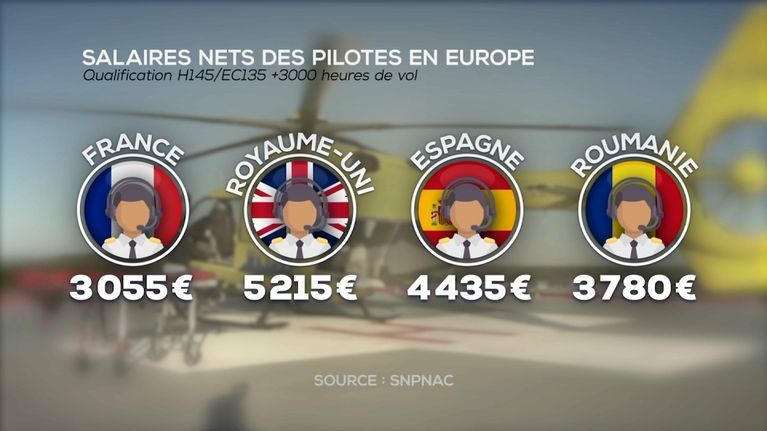Will Samu’s helicopter pilots be on strike this summer?
Follow the full coverage
8 p.m.
Alexandre Hinaux is a helicopter pilot. Every day for 14 years, he has been transporting patients in vital emergency. He receives 3,137 euros net per month, not enough according to him. “”Our claims, they are very simpleexplains this member of the National Syndicate of Navigating Staff of Civil Aeronautics (SNPNAC) in the report of 20h of TF1 visible above: We ask for a minimum of 30% of re -evaluation of our salaries to reach at least in equal Romanian colleagues“.
Because he collected the pay sheets of his European colleagues, and his observation is bitter. For the same qualification, a French pilot earns 3,055 euros, when his English neighbor is 5,215 euros, 4,435 in Spain and 3,780 in Romania. An observation to which the SNPNAC threatens: “From this summer, the Samu helicopter pilots as well as crew members (…) will stop their activity in France“, Warned the union on Tuesday.
-
So, are the French pilots really less well treated than their European counterparts, and how to explain it? The representative of helicopter operators, Christophe Rosset, responds to TF1: “They have slightly lower remuneration, with higher benefits“. For example, the English are certainly better paid, but their retirement is much less generous than that of the French. Another difference, the number of days worked per year, 166 maximum in France, against 180 generally among our neighbors. “The French pilots are those who do the least work days per year and we have offered us, to be able to increase their remuneration, that they work ten more days, which would increase their remuneration from 8 to 9%“Indicates Christophe Rosset.
-

Read
SNCF strike: How much are the controllers and drivers paid?
A track that would perhaps avoid a strike this summer, a scenario that would put hospitals and patients in great difficulty. “”We will have to ensure everything by land, with much longer interventionsworries Professor Louis Soulat, head of the SAMU of the Rennes University Hospital and vice-president of the Samu Emergencies of France. In the case of a infarction, in the case of a serious accident, the first hours are essential and the longer the delay to transport the patient, the more the intervention will be deferred, therefore with consequences, loss of opportunities …“Professionals in the sector ask to be received as quickly as possible at the Ministry of Health.










